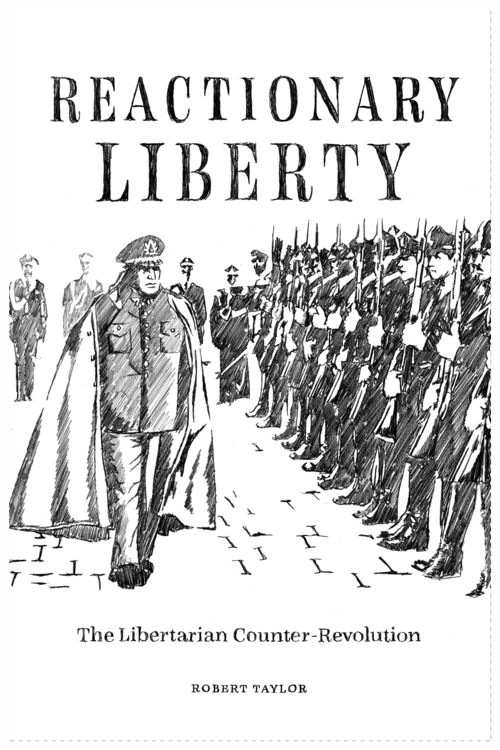
Reactionary Liberty is a book about libertarian philosophy by Robert Taylor that approaches this and related subjects from a reactionary perspective. The book is divided into fifteen chapters, with a short introduction preceding.
Taylor begins with a four-page introduction in which he explains his motivations for writing the book. Mostly, this involves the decisive leftward shift in American libertarianism since the Ron Paul presidential campaigns of 2008 and 2012, including a notorious open letter to Paul read at the 2015 International Students for Liberty conference and Gary Johnson's disastrous presentation in 2016. He briefly explains what is wrong with left-libertarianism and gives an outline of the structure of the book.
In the first chapter, Taylor begins with the non-aggression principle (NAP), self-ownership, and private property rights. Although Taylor notes the important distinction between just property and currently-held property, he fails to properly account for the role of conquest in determining property rights over the long term. Taylor goes on to explain the social and economic difficulties that arise without secure property rights. The failures of central planning are discussed, as are the differences between negative and positive rights. He lays out the history of natural law in Western philosophy, beginning with early Christian thinkers, continuing through Enlightenment philosophers, and culminating in Hans-Hermann Hoppe's argumentation ethics. Taylor contrasts this with the state, which routinely violates natural law and rights. He details the many crimes of nation-states, war and debt slavery being chief among them. Taylor concludes by proposing an alternative to Marxist class theory which vilifies the state rather than the capitalist, and elevates the producer rather than the parasite.
The second chapter deals with the Austrian School perspective on the subject. Taylor takes the reader through praxeology, the action axiom, marginal utility, and the role of prices in efficiently allocating resources. Next, he explains why government and central bank interference with prices is so destructive. The section on money deals with the history of money according to the regression theorem, beginning with barter and commodity money, then progressing to precious metals and receipts for those metals. Taylor shows the reader that modern fiat currencies are a corruption of these receipts into instruments of inflation and debt slavery that facilitate unduly risky financial behavior, state largesse, and wars. In the Austrian view, these behaviors fuel the business cycle of booms and busts by distorting interest rates, which leads investors astray.
Spontaneous order and free markets are the subjects of the third chapter. Taylor begins with the economic calculation problem, the knowledge problem, and public choice theory, showing that central planning cannot succeed because it cannot calculate prices without the market and is further hampered by cynical concerns. He then covers the concept of spontaneous order, making the important and oft-overlooked observation that “there is no such thing as an unregulated market; the issue is, rather, who is doing the regulating.” These regulations take the form of trust, reputation, and freedom to dissociate, unless the state interferes by imposing its coercive regulations. Taylor frames the difference between state and market in terms of who gets profits and who suffers losses. The state privatizes profits and socializes losses, while the market does the opposite. Next, Taylor proposes the term marketization to describe the proper procedures for converting state monopolies into free-market entities, as privatization has acquired the meaning of turning over state monopolies to politically-connected oligarchs, as happened in Russia when the Soviet Union collapsed. He concludes the chapter by providing an outline of how businesses may function in a purely libertarian market while noting that the particulars can only be observed in the future, not precisely predicted in the present.
Read the entire article at ZerothPosition.com
I've always inclined towards the libertarian perspective but I've never read any literature on it. It just seems like the most rational position. But this book from this post seems to explain its positions in a very detailed and scientific manner. I would love to read it soon.
Downvoting a post can decrease pending rewards and make it less visible. Common reasons:
Submit